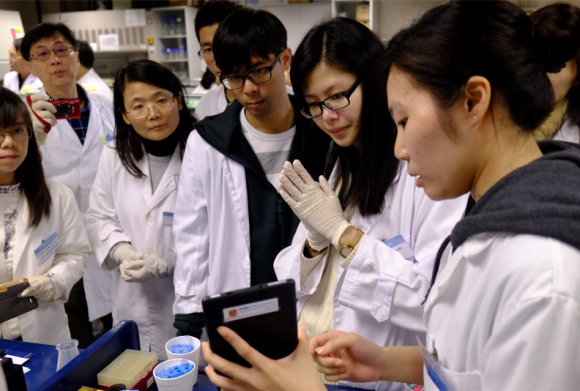In this ongoing monthly feature, the Program Office highlights strategies different sites are using to scale for depth, spread, shift, and sustainability. This month, we focus on ABE program sites using promising scaling strategies for shift.
“Shift,” as defined by Cynthia Coburn, is about building local ownership, understanding, and leadership for the program beyond the external providers. It means that program sites are thinking about how to build capacity to support the program beyond the immediate ABE program site team. ABE sites are planning for shift in a variety of exciting ways.
ABE Massachusetts uses a multifaceted approach to building ownership and leadership for the program among their teacher and school communities. Experienced ABE teachers co-lead PDIs and are active participants in piloting and shaping new learning experiences. Some participating schools prepare their own reagents. The ABE-MA team is also working with Boston Public Schools, a large urban school district, to integrate ABE into their local biotechnology pathways, ensuring district ownership and investment in ABE.
ABE Hong Kong SAR provides trainings to lab technicians in ABE schools to enhance the capacity of the school to internalize the program. The program site also assists ABE schools to purchase their own equipment and materials.
ABE France has worked with their Ministry of Education to highlight ABE as a national “flagship program” and integrate it with the French curriculum. They have also encouraged teachers to adapt the ABE teacher guide and make it their own, and many teachers have chosen to do so. Many experienced ABE teachers have also trained their school colleagues, demonstrating both ownership and leadership at the school level.
Next month, we will focus on strategies program sites are using to support scaling for sustainability. Want to learn more about different approaches to scale? Contact Jessica Juliuson at jjuliuson@edc.org.
